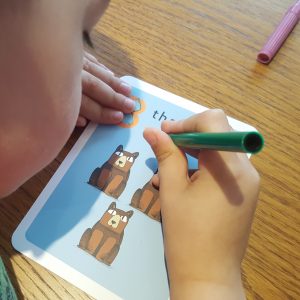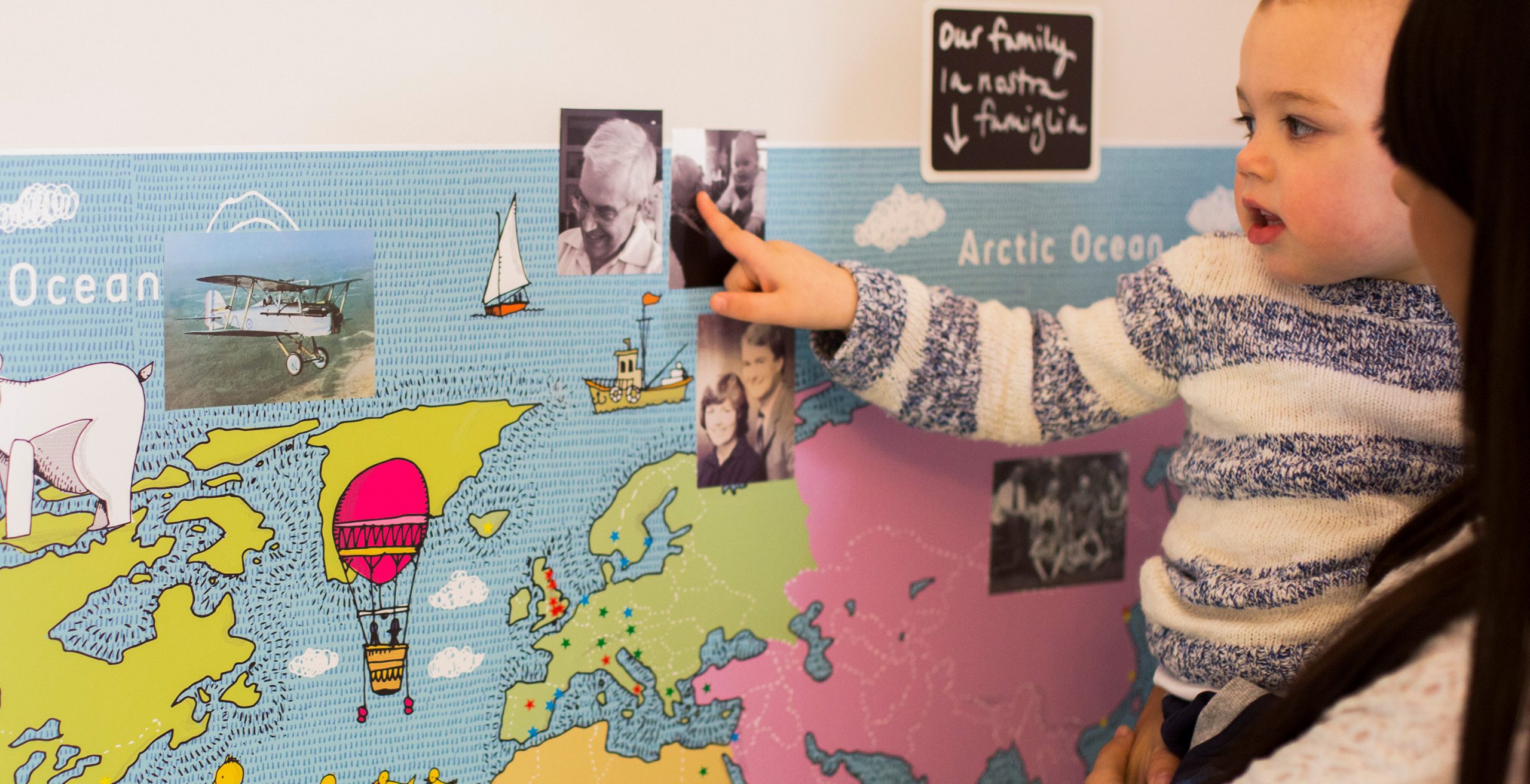The Questions About Bilingualism You Were Afraid To Ask
Tanya Mozias Slavin is a writer and a linguist. She has lived in five countries and is a mum to a bilingual nine-year-old and a trilingual three-year-old. Find her at www.tanyamoziasslavin.com or on Twitter (@tanya_slavin)
We live in a world where being multicultural, multilingual, multi-anything is quickly becoming the norm. But I still regularly meet parents who have deep seated concerns about raising their children bilingual. They often feel insecure about their ability to pass on a second language to their kids, and have unanswered questions about bilingualism. Many parents don’t know how to do it, and are concerned that being multilingual is going to negatively impact their child’s development or their sense of identity.
If you’re secretly one of these parents, read on:
Will my child really be able to master more than one language?
The most important thing in raising a bilingual child is getting enough exposure in each language. So if your child’s contact with the second language is limited to a weekly Saturday school lesson, although there will be many benefits, it’s not going to be enough for her to become fluent in that language. But if you consistently speak the language at home, even only for a few hours every day, there is no reason she won’t master two or more languages.

Will my child’s performance in school suffer because he has to juggle more than one language?
It’s another outdated belief that having to juggle more than one language is a strain on the brain and negatively influences the child’s school performance. In the early years, the bilingual child’s vocabulary might be distributed between their two languages (for instance, at five my son didn’t know the names of certain common animals in English but only in his home language). This might give an impression that they’re behind their peers. But don’t worry, it will soon level out. It’s easy enough to pick up additional vocabulary in a language you’re fluent in, but it’s much harder to learn a whole new language later in life. Not to mention that your child will be able to reap the many well-documented developmental benefits of bilingualism, like improved concentration and maths skills.

Can my child learn a second language if I myself am not a confident speaker?
You don’t have to be a native speaker to pass on a second language to your child. In order for a child to learn a second language, they need to have enough exposure to it, but this doesn’t necessarily need to come from you. However, if you are planning on being the main source, you have to be somewhat confident. In any case, if you can carry on a conversation in the language, there is no reason you can’t start carrying on that conversation with your child! Just make sure your child gets additional exposure to that language in other ways, like regular interactions with native speakers and watching cartoons. Many parents I know do exactly that: begin to speak a second language to their child (full time or part time) even if they’re not a native speaker themselves. They’re killing two birds with one stone: practicing speaking the language and getting their kid to speak it too!
What are your questions and concerns about raising bilingual kids? Leave them in the comments and we’ll address them in a future post!


4 Comments
Join the discussion and tell us your opinion.
My main concern is whether my child will truly be bilingual or not. He goes to Nursery full time and he learns French with me but our time during the week is very limited. He is 2 and I have noticed that his vocabulary is increasing much faster in English. My friend’s little one is 4 and understand German perfectly but doesn’t speak it. Thsibis despite the benefit of spending 2 whole days per week with her German mother. How do I prevent this from happening.
Hi Stéphanie,
Thank you so much for your comment. Your child absolutely can be truly bilingual. It is natural to worry about exposure to the minority language. Our minority language at home is Italian, and we follow the one parent, one language approach. My husband spends most of his time with the children on the weekend (he is at work in the week), but both are speaking Italian fluently relevant to their respective ages (four and two). There are several things we do in order to manage this, the first and most important is that Gianluca has never spoken a word of English to them. I also make sure Italian is really ‘visible’ at home; everything is bilingual from our chalkboard in the kitchen, to posters in the children’s room, through to our book shelves. We do allow some cartoons, and they are only in Italian. There is much more I can share on this subject – and i’ll be writing it all in a blog post soon. I hope that helps a little and please do email me alex@lilollo.co.uk
Also if you haven’t joined Adam Beck’s forum http://bilingualzoo.com/ please do, it is a treasure trove of brilliant advice.
Thanks for that. It’s very reassuring. I like your idea of making Italian visible. We do have some French toys and bilingual books but not enough. Although I just received some beautiful bilingual flashcards from likollo that I can’t wait to use! ? And what are your thought on learning to tead in both languages at the same time. Could learning phonics for French and English be confusing? Is it better to hold off with the French (as the minority language) until the English is sufficiently integrated or go ahead with both? Although I am a languages teacher, this is very different. I try to research info in the subject but there are a lot of contradictions out there on the subject. X
My biggest concern is how I can pass on language equally to my children. I can see the difference between the first attempts with my older children, the energy annd confidence that I put into it all, and with my last child (the 5th).